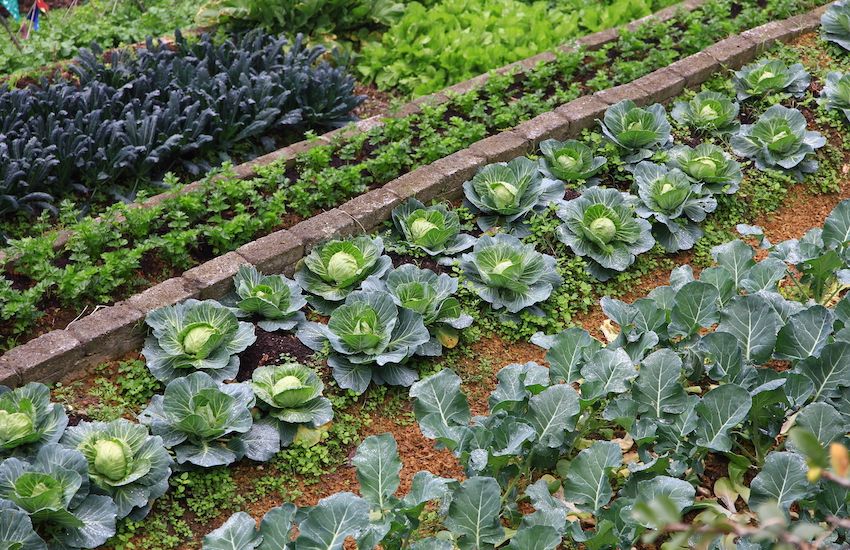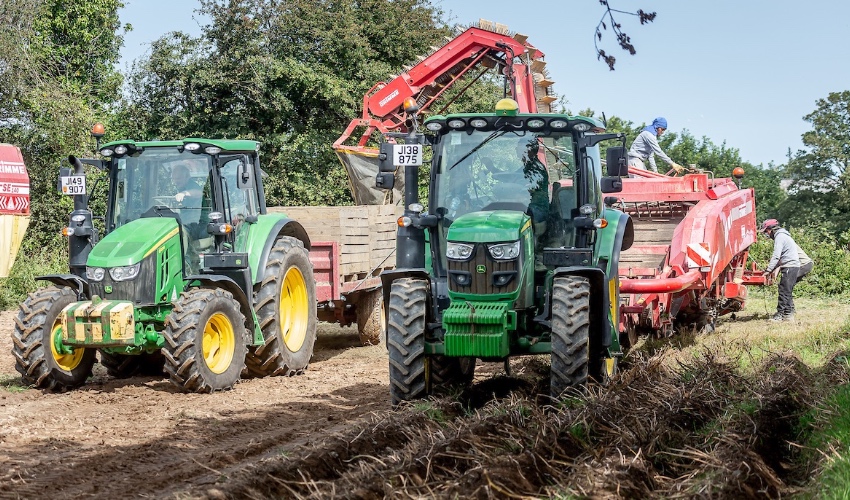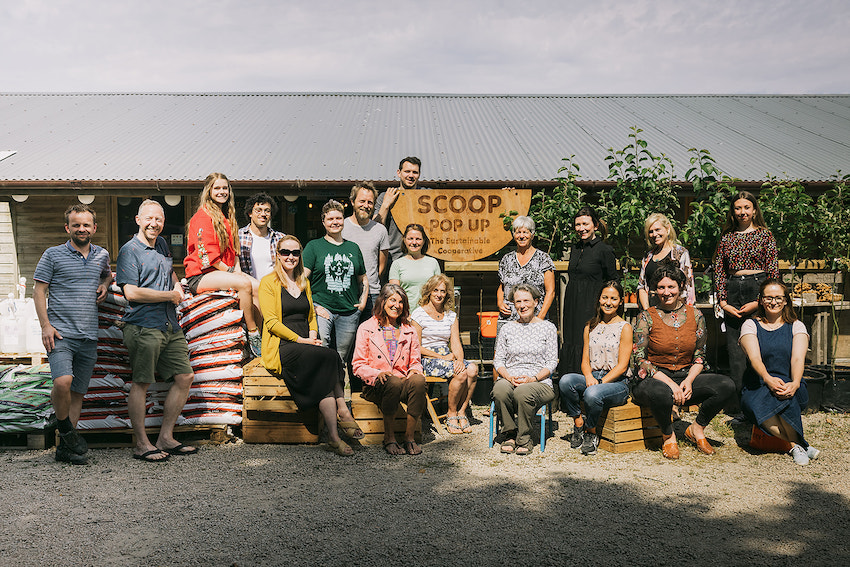


An ‘Island Farming Foundation’ to encourage small-scale ‘community-owned’ farms to supply more locally grown food could soon be set up, under new Government plans.
The recently published ‘Economic Framework for the Rural Environment’ concedes that the island currently has a “fragile economic ecosystem”.
The Government adds that it will need to work closely with all stakeholders over the coming years “to ensure that that ecosystem is revitalised, and the sector is able to attain goals of long-term environmental, social and economic sustainability”.
The release of the framework coincides with the decision of the island’s largest supplier of locally grown veg, Woodside Farms, to pull out of that sector because it could not make enough money to make the business viable.
This means that more vegetables sold in supermarkets will be imported rather than grown and packaged in Jersey.
The Government not only hopes to encourage new community-owned farms but also to create new “pathways” to encourage small holders to contribute to the supply of local food for the domestic market.

Pictured: A survey in 2020 found that 95% of people thought that the Government should be supporting farmers at least to the same level of support as elsewhere.
The framework says: “Jersey struggles to compete on production and marketing of commodity produce against other jurisdictions due to economies of scale, prohibitive transport costs, and support regimes in neighbouring jurisdictions which enable supplies to undercut local produce.
“Only niche, branded and protected produce such as Jersey Royal potatoes and Jersey milk products can be traded at profit.”
It adds: “Local consumption of local produce is vitally important to maintaining the existing agricultural product mix, but this has been in significant decline for a number of years.
“A diverse local production base would assist in strengthening rotational practices improving soil health, water quality, biodiversity and may offer opportunity new land- based businesses to be established.
“Establishment of new holdings is more easily achieved on a ‘smallholder’ scale.”
On the issue of food security – with the island set to be even more reliant on imported food following Woodside Farms’ decision – the framework pledges the Department of the Economy to “review and update the food security report for consideration by the Council of Ministers and establish a long-term plan for the island”.
It adds: “The subject of food security, along with water and energy security is rising as priorities for governments globally and particularly in locations geographically isolated or reliant on complex transport links.
“The Government has started exploring the issues around food security for Jersey and perhaps unsurprisingly the majority of fresh fruit and vegetables purchased on the Island are imported.”
The new framework also commits the Government to:
assess the opportunities to develop and increase food processing and packaging “in a manner which supports the domestic consumption of local produce, adds value to the supply chain, reduces waste and negative environmental impacts”;
review its position on the regulation of ‘Genetically Modified Organisms’ “after full consideration of the latest technology, ensuring the Island’s agricultural industry and public views are taken into account.” The States agreed in 1999 not to allow genetically modified crops to be grown in Jersey; however, there is not formal legislation in place;
take “proactive measures” to reverse the recent decline in locally produced food;
assist industry to explore opportunities to develop beef production as an integral part of the Island’s dairy sector;
create a working group with industry and civil servants to establish and consider opportunities for carbon sequestration in the countryside;
continue research on diversifying into ‘high-value crops’ to promote opportunities for improving the socioeconomic resilience of the sector. These include ‘pharmaceutical crops’ or ‘plant-made pharmaceuticals’;
work alongside industry, Jersey Business and Skills Jersey to identify and promote opportunities for new entrants and to assist business succession plans where appropriate;
develop an ‘e-based communication strategy’ for the rural sector.
The framework also sets out the subsidies that producers will receive under a three-tier ‘Rural Support Scheme’, which applicants can move up based on accreditation with approved schemes.
The budget for the scheme has grown for the past three years and will increase again next year. The Government argues this will allow its ‘single area payment’ to rise “to a level more consistent with support provided in neighbouring jurisdictions”.
The framework’s support of smallholdings and community agriculture has been welcomed by the founders of Scoop, a ‘sustainable cooperative’ which works with local producers and growers, selling their produce at its farm shop in St. Lawrence.

Pictured: The team at Scoop. (Natalie Meyer)
“We see the framework as a positive - it is more inclusive of smallholdings, as well as community, organic and regenerative agriculture,” said Scoop co-founder India Hamilton.
“As an organisation, we are trying to define food security from a systems perspective, so incorporating resilience, nutrition, food availability, and waste-management into the equation.
“Yes, of course, farming needs to be viable, but we all need to start thinking differently about what food security means.
“Food as a concept has become so devalued. We have to start assessing the value and cost of the current agricultural system - in terms of chemicals used, processing, waste produced etc – and take a more holistic approach.”
"A successful rural strategy will keep Jersey farming and ensure our food system retains and promotes consumption of locally produced food for Island residents, which in turn makes a valued contribution to our sense of place and identity.
"It may be noted that the management of our countryside remains, for the most part, an activity centred on agriculture (farming), and this is fundamentally an economic activity focussed mainly on the production of food.
"Acknowledgement of this reality does not intend to downplay the vital concept of operating within sustainable environmental limits or prevent the opportunities of change, with consideration of alternate land uses or management regimes.
"Ecological and environmental sustainability objectives clearly underpin the rural sector and are considered as essential to the maintenance of successful and sustainable rural business activity. Ecological and economic ‘prosperity’ are not mutually exclusive but can and should be complementary objectives.
"Nonetheless, the most immediate challenge facing the management of our countryside and production of food are not issues of environmental sustainability, but socioeconomic challenges which have significantly reduced business and product diversity on the island and led to a fragile economic ecosystem.
"It may be argued that lack of economic diversity in rural business can lead to a loss of social diversity, and perhaps also a reduction in habitat diversity and resultant biodiversity.
"The current economic outlook for all rural businesses is challenging. The value exchange within our food system is a complex process involving producers, suppliers, customers, consumers, the community at large and Government.
"This framework is not intended to provide direct comment on current economic considerations faced by the rural sector but provides a clear pathway to establish, deliver and measure a range of projects and interventions, delivered primarily by the Department for the Economy, to enable the sector to adapt, evolve and thrive."
130-year-old Jersey farm on brink of closure
FOCUS: Woodside story – how significant would its closure be?
Woodside story: Assistant Minister calls for doubling of farm support
Comments
Comments on this story express the views of the commentator only, not Bailiwick Publishing. We are unable to guarantee the accuracy of any of those comments.